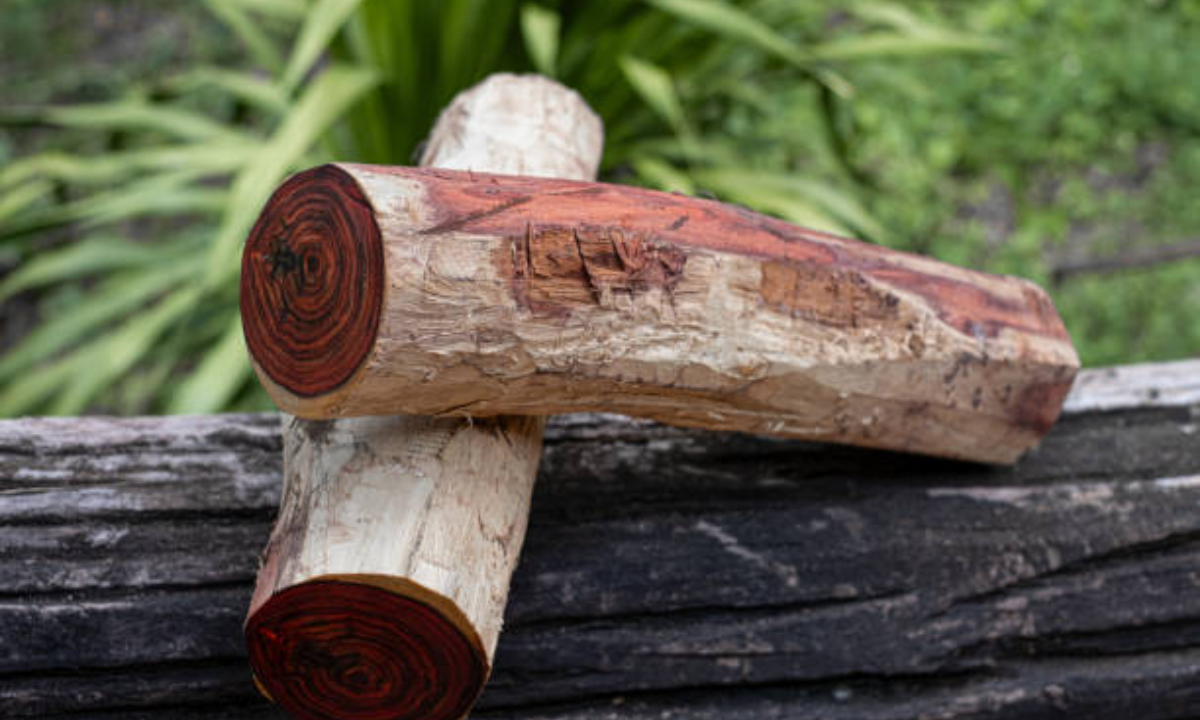The reason that Indian rosewood is showing a higher demand in the Chinese timber market is due to its qualities and the importance of the wood as a cultural symbol. Crucially, rosewood with its natural origins in the dense forests of Karnataka in India, both manufacturers as well as consumers in China, find value proposition in beauty, durability, and added value inherent to rosewood.
China’s National Hongmu Standard, issued by the Ministry of Commerce (MofCOM), lists 33 species of tropical hardwood as recognized Hongmu. Only 8 out of 33 Hongmu species are protected under CITES. Two are of Indian origin, namely: Dalbergia Latifolia (Rosewood), and Pterocarpus Santalinus (Red Sandalwood).
Sustainable Harvesting
Teak and Indian rosewood are two types of tropical hardwood most of which are harvested in a manner that is ecologically friendly and scientifically proven among the forests of the world. Strict protocols ensure only mature trees are selected from designated production zones, allowing new growth.
Care is taken to minimize environmental impact while harvesting. This ethical sourcing reassures buyers and differentiates rosewood from other tropical hardwoods of questionable origin.
Beauty and Value
Visually, rosewood is striking with its rich dark red hue and beautiful grain patterns. Its moisture-resistant qualities make it suitable for floors, furniture, and architectural accents. Rosewood takes stains and finishes beautifully. While exhibiting premium aesthetics, it also offers competitive pricing compared to other exotic hardwoods. This blend of beauty and affordability is highly attractive to Chinese manufacturers and customers.
Cultural Significance in China
In Chinese philosophy, rosewood symbolizes nobility, prosperity, and longevity. Furniture and structures made from it represent good fortune. Its heritage aesthetic seamlessly combines with modern Chinese design. This deep cultural resonance strongly appeals to affluent Chinese consumers.
Rising Demand
China’s booming construction and furniture industries have a voracious demand for quality timber. Rosewood is perfectly suited to the country’s diverse wood application needs. As living standards rise in China, so does demand for rosewood’s prestige and attractiveness. It satisfies both material and cultural preferences.
Exemplary Sourcing
Mr. Leonard Mills of Coorg Rosewood Timbers epitomizes responsible sourcing through dedicated programs in Karnataka, India. Strict protocols protect ecosystems while providing fair wages and skills training to local communities. This people-centric approach ensures both conservation and socio-economic prosperity.
Leveraging Cultural Significance
Indian rosewood has strong cultural roots in China that can further boost its market potential. Traditional Chinese philosophies attach symbolic meanings to rosewood relating to nobility, prosperity, and longevity.
1. Partnerships between rosewood suppliers and designers/architects well-versed in classical Chinese styles can showcase the timber’s historic role through new high-end buildings and furniture. Educating consumers about Rosewood’s cultural heritage through marketing also deepens appreciation.
2. Organizing exhibitions at museums and cultural festivals celebrating Chinese traditions provides an immersive context for rosewood. Curating social media content portraying Rosewood’s endurance in iconic sites over centuries conveys its cultural-historical value.
3. Collaborating with influencers in Chinese culture and design promotes discussion around rosewood. Aligning with luxury brands targeting customers blending modern designs with heritage nods positions it as a premium material.
4. Workshops instructing various feng shui-based home incorporation techniques further cultural understanding. Experiential and educational approaches highlighting rosewood’s intrinsic significance for Chinese seeking tradition-inspired living strengthens appeal. Together these leverage Rosewood’s deep roots to open greater market potential.
How can rosewood’s cultural significance be incorporated into modern luxury home designs for Chinese consumers?
Indian rosewood’s cultural significance could be incorporated into modern luxury home designs for Chinese consumers in below ways:
- Feature rosewood accents and detailing that reference traditional Chinese symbolic motifs like dragons, phoenixes, or auspicious symbols. This nods to heritage while blending it with contemporary aesthetics.
- Incorporate rosewood sparingly but strategically based on feng shui principles. For example, using it for guard rails on staircases or incorporating it into headboards to represent status and good fortune.
- Design rosewood furniture pieces with a fusion of classical Chinese lines/silhouettes and modern minimalist styles. For example, rosewood side tables or consoles with clean modern forms but inspired by traditional designs.
- Use rosewood for built-in cabinetry, kitchen countertops, or wall paneling to bring elegance and cultural richness to living areas in an understated way.
- Include rosewood-framed artwork or sculptures of cultural imagery like landscapes or calligraphy to reference Chinese artistic traditions.
- Leverage rosewood’s versatility by incorporating it into both public and private spaces like entryways, living rooms, and bedroom vanities to allow its meanings to permeate the home.
- Consider unconventional uses like rosewood-topped dining tables or rosewood-framed bathroom mirrors to subtly remind occupants of its significance throughout the day-to-day home.
The key is fully realizing Rosewood’s potential through thoughtful, nuanced integration that seamlessly blends reverence for Chinese heritage with luxurious modern design sensibilities.
Conclusion
Driven by sustainable harvesting practices, deep cultural roots in China, and industry growth, Indian rosewood has carved an important niche. With responsible sourcing and spreading word of its benefits, demand is poised to steadily increase in the future. Indian rosewood stands to retain prominence for years to come.
Coorg Rosewood Timbers, led by founder Mr. Leonard J. Mills, is a specialty timber merchant and exporter who focuses on creating exclusive, personalized rosewood furniture and interior solutions to transform houses into cherished homes.

